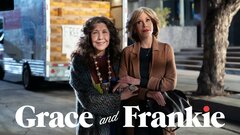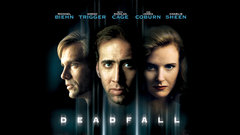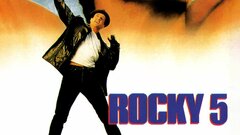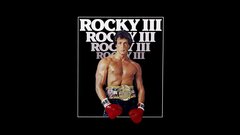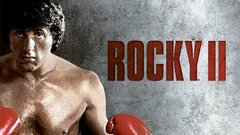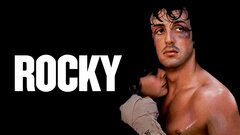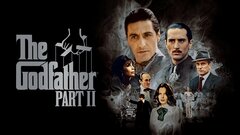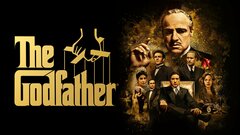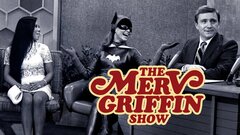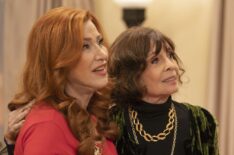Oscar-nominated actress and producer Talia Shire was at the center of two of the most popular film franchises in Hollywood - she was the painfully shy Adrian, who won the heart of rough-hewn boxer Rocky Balboa in the "Rocky" (1976) series, and appeared as Connie Corleone, youngest daughter of Don Vito Corleone in "The Godfather" (1972) sequels. Being at the heart of a movie dynasty was nothing new to the New York-born performer - she was the daughter of musician and composer Carmine Coppola, and sister to acclaimed filmmaker Francis Ford Coppola. She later extended the Coppola family business via her sons, actor Jason Schwartzman and musician Robert Carmine.
Born Talia Rose Coppola on April 25, 1946 in Lake Success, NY, Shire was the youngest of three children born to Carmine Coppola and Italia Pennino, whose father had been involved in the early years of the Italian film industry. The Coppola family moved frequently after Shire's birth, due to the requirements of her father's job as an arranger and conductor, and his unhappiness due to failed ambitions greatly affected Shire and her siblings. She also suffered from crippling shyness, finding solace in performing plays in her own bedroom, most notably "The Glass Menagerie," whose heroine, Laura, shared Shire's own fears.
Shire bounced in and out of school in her teenage years, hoping that a rebellious streak would cure her social awkwardness. She eventually found an outlet at the Yale School of Drama, which had offered her a scholarship. But Shire found the program there lacking, so promptly dropped out in the middle of the second year. She lit out for the West Coast, where she found work on stage and in low-budget features produced by legendary filmmaker Roger Corman for American International Pictures. Her first film credit was as "1st Girlfriend" in the Corman-produced "Wild Racers" in 1968. More Corman credits followed, including "The Dunwich Horror" (1970) and "Gas-s-s-s!" (1971). In each of these projects, she was billed as Talia Coppola.
Shire also became involved with up-and-coming composer and songwriter David Shire -best known for his work on "The Taking of Pelham 1-2-3" (1972) and "Zodiac" (2007) -in 1969. The couple married in 1970. At this time, her brother Francis was emerging as a director to watch in Hollywood, and had signed to direct a film version of Mario Puzo's best-selling novel, The Godfather. Though reluctant to approach her brother for a role, she gave a screen test for the role of Connie, the youngest and most vulnerable of the Corleone brood. The test was a success with executives at Paramount, but Coppola initially resisted casting Shire on the grounds that he felt she was too beautiful for the part. In the end, she was hired, and billed for the first time as Talia Shire.
Her time on the "Godfather" set was challenging at first; there were frequent whispers of nepotism among cast and crew, but Shire's moving performance as Connie convinced naysayers that her talent had earned her the role. Furthermore, it assured her a place in the inevitable sequel, "The Godfather Part II" (1974), and Shire admirably rose to the challenge of playing Connie as a changed woman who indulges in affairs to spite her brother Michael (Al Pacino), whom she believes is responsible for the death of her abusive husband, Carlo Rizzi. Her performance in the sequel, which culminated in a moving plea for forgiveness at Michael's feet, earned Shire her first Academy Award nomination.
Shire's sudden ascent to fame took a sudden and unexpected turn in 1975 when she learned that she was pregnant with her first child. Though she was encouraged to focus on her film career, Shire decided to devote her energies to her new son, Matthew Shire, who was born in October of that year. Shortly after his birth, Shire auditioned for and won the role of Adrian Pennino (whose last name was taken from her own maternal grandfather), the painfully withdrawn object of club fighter Rocky Balboa's affection in Sylvester Stallone's underdog drama, "Rocky" (1976). Shire, who wore her own outfits and her own glasses in the role, gave a quietly lovely performance, which helped to win the hearts of moviegoers across the country - to say nothing of inspiring one of the most famous exclamations in film history - "Adrieeeen!" Shire earned her second Oscar nomination for the role, and won the National Board of Review and New York Film Critics awards for Best Supporting Actress.
Shire's career in the wake of two such substantial early successes was marked by several quality projects - she starred in two fine TV movies, "Kill Me If You Can" (1977), as the legal adviser to convicted killer Caryl Chessman, and "Daddy, I Don't Like It Like This" (1978), which reunited her with "Rocky" co-star Burt Young (who also wrote the script) in a story about child abuse. Shire was top-billed in "Old Boyfriends" (1979), a dark comedy about a psychiatrist who seeks out her old boyfriends after divorcing her husband, and she managed to emerge from John Frankenheimer's ludicrous environmentally themed monster movie "Prophecy" (1979) with reputation intact. The commercial highlight of this period was, of course, "Rocky II" (1979), which saw Adrian blossom into a self-confident woman with serious concerns over her husband's return to the ring.
In 1980, Shire separated from David Shire; a year later, she found herself pregnant again by Jack Schwartzman, head of Lorimar Pictures. The couple's son, Jason Schwartzman, was born in June of that year, and the couple married two months later. With Schwartzman, Shire launched a production company, TaliaFilm, and served as producer or consultant to the producer on several feature films, including the James Bond feature "Never Say Never Again" (1983). Her on-screen appearances were limited during this period; the arrival of a third son, Robert, in 1982, limited her availability, but she did return to the "Rocky" franchise for the underwhelming "Rocky III" (1983), which at least provided her with a glamorous wardrobe, as well as the massively popular "Rocky IV" (1984). Shire also teamed with brother Francis in 1987 for his adaptation of "Rip Van Winkle for Shelly Duvall's popular "Faerie Tale Theatre" (Showtime, 1982-87) series, and for his segment in the anthology feature, "New York Stories" (1988).
The following year, Shire returned for the last time to the roles that made her famous - she once again donned Adrian's glasses for the much-maligned "Rocky V" (1990), which saw her character return to the Philadelphia tenements from which she came, while in "The Godfather Part III" (1990), her Connie had transformed into a elegantly confident - and ruthless - woman who poisoned her own godfather and groomed her son (Andy Garcia) to become the head of the Corleone family. The films fared only moderately well at the box office, but Shire was singled out in several reviews for the strength of her performances.
Shire kept a low profile for most of the 1990s, appearing in independent films and television productions. She also made her directorial debut in 1995 with "One Night Stand" (1995), an erotic thriller co-produced by Roger Corman and her husband. The project, however, was overshadowed by Schwartzman's poor health, due to pancreatic cancer, which eventually claimed his life in 1994.
Following Schwartzman's death, Shire kept busy with acting roles in more independent features, including 1998's "The Landlady," in which she starred and co-produced as the malevolent title character who murders anyone who opposes her infatuation with a younger tenant. Meanwhile, Shire's sons began to enjoy their own careers; Jason wowed critics with his confident lead performance in "Rushmore" (1999), and Robert - who adopted his grandfather's name, Carmine, for his own surname - enjoyed roles in "The Princess Diaries" (2000). Both sons would also establish popular music careers with the bands Rooney (which featured Robert as lead singer) and Phantom Planet (for which Jason was drummer). In 2004, Shire co-starred with Jason in David O. Russell's indie comedy, "I (Heart) Huckabees."
Shire was noticeably absent (save for archival footage) from Stallone's "Rocky Balboa" (2006), which revitalized the franchise and his own film career. However, she was present in films and television, including a surprising and amusing turn as the therapist for the cavemen spokesmen in a commercial for Geico Insurance.







